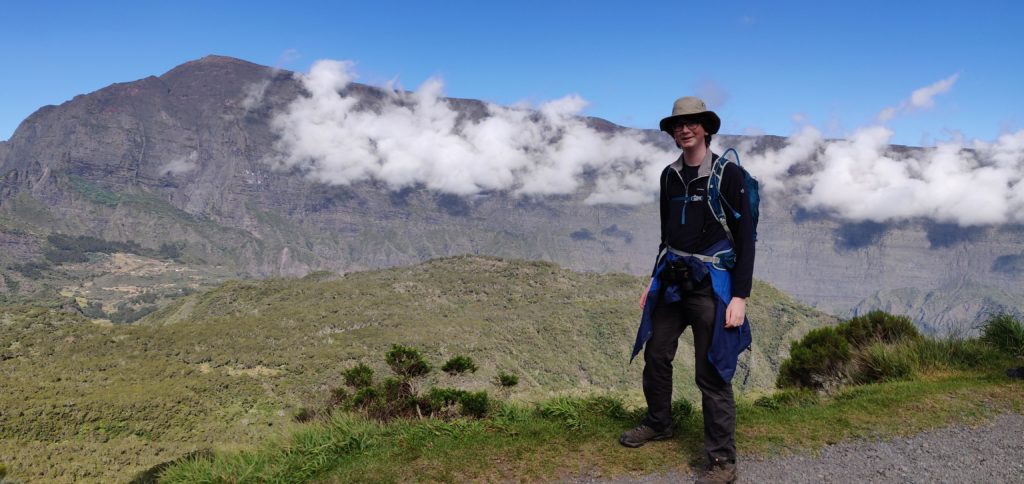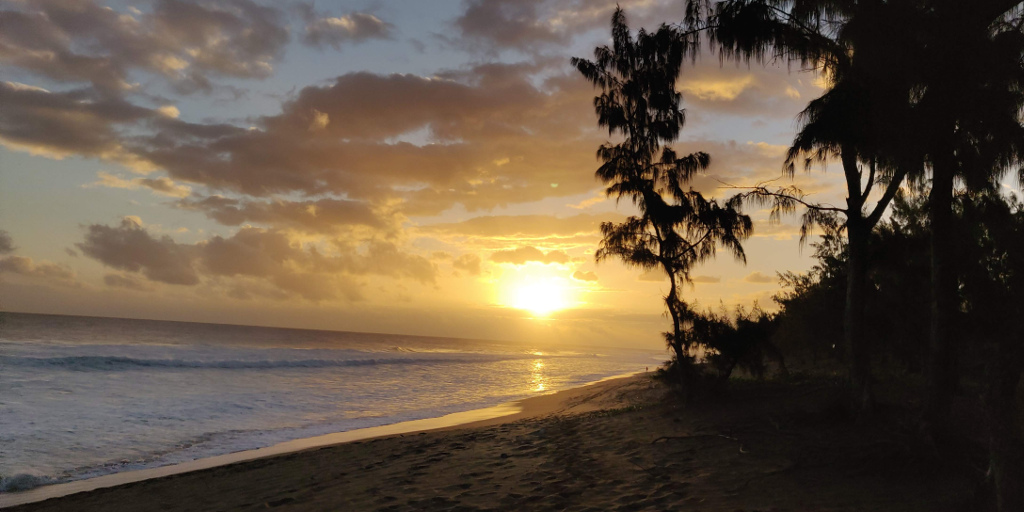Island biologists often work in beautiful and interesting places. It seems only fitting that when they meet up to discuss their work, they do it somewhere like Réunion, a volcanic oceanic island in the Indian Ocean, administered as a French department and the site of the 2019 Island Biology conference. Armed with my Junior Cert level French, I made the journey to discuss my PhD project on the birds of Sulawesi and the work of the TCD Biogeography Working Group.
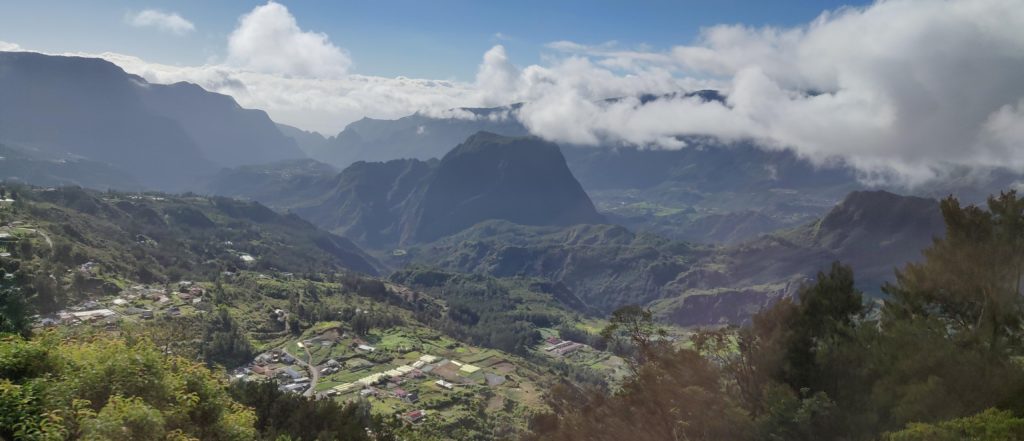
Ever since I read David Quammen’s The Song of the Dodo as an undergraduate, I have been fascinated by island biology and biogeography. My imagination was captured by the diverse, exotic species and the adventures of the naturalist-explorers who studied them. It is no coincidence that the projects I’ve become involved in since then have all involved islands. My PhD project is on the cryptic diversity of the birds of Sulawesi, Indonesia: you can read more about them from my former labmate Dr Darren O’Connell. I am also part of the TCD Biogeography Working Group, a team assembled from across research groups in the Botany and Zoology Departments to look at evolution on islands. Our upcoming paper uses data from over 140 published studies to compare the effects of isolation on islands to isolation on the mainland – EcoEvo will have a write-up once it’s published, so stay tuned!
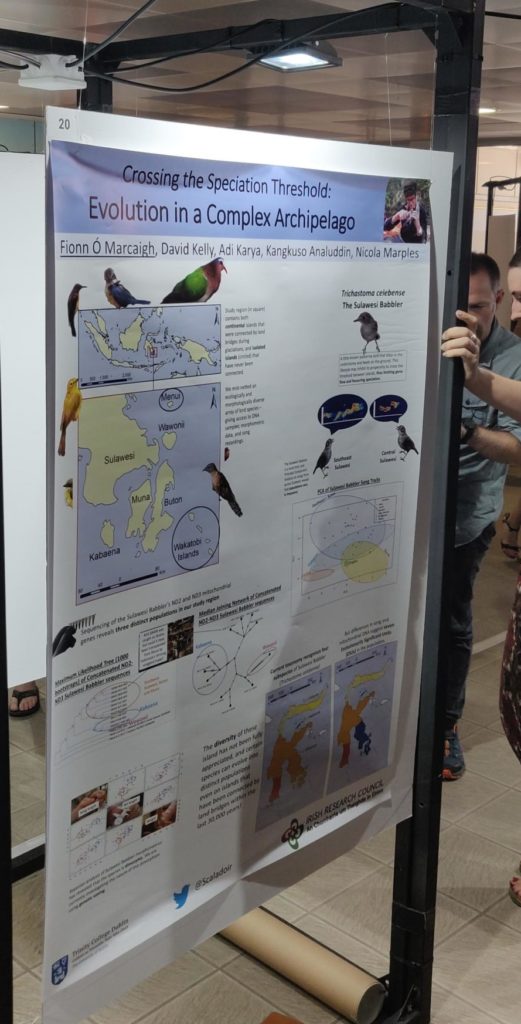
The poster on my Sulawesi Birds research that I presented at the conference. There is much undocumented diversity in these birds, as evidenced by this investigation into the Sulawesi Babbler, Trichastoma celebense. 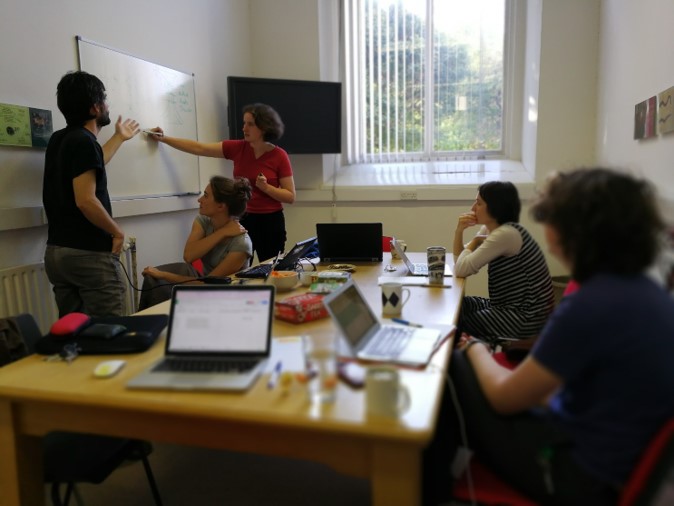
The TCD Biogeography Working Group in action
Réunion Island is a perfect place to discuss the evolutionary isolation of islands: it was extruded from the floor of the Indian Ocean by volcanoes above the Réunion hotspot (also responsible for India’s Deccan Traps), and has remained separate from all other landmasses ever since. Over the last two million years, the island’s volcanoes have built a landscape of incredible rugged beauty, where clouds tumble down the rims of craggy calderas and lentil fields cling to cliff edges like lichen to a rock face.
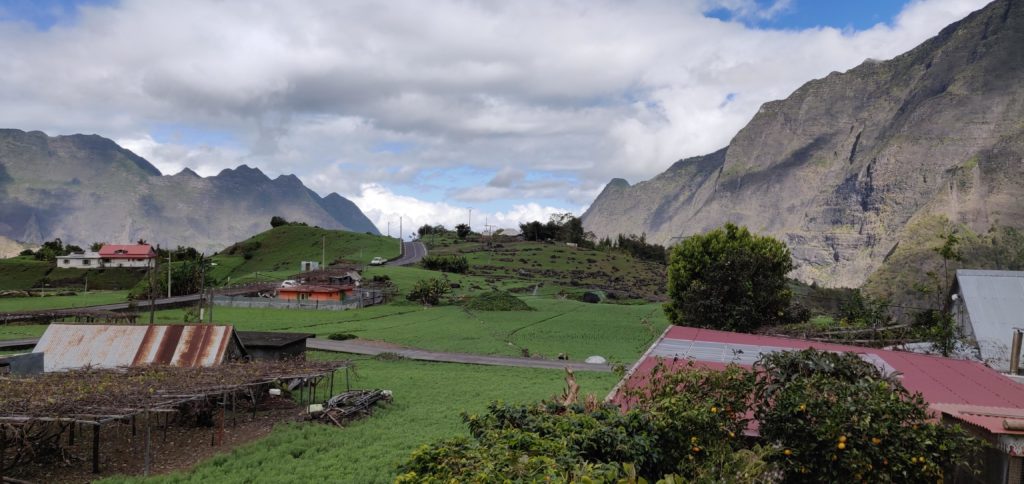
The Université de la Réunion were our gracious hosts in the city of St-Denis, in the midst of this geological finery. A series of plenary talks by distinguished island biologists proceeded like a greatest hits compilation of the world’s island systems and taxa, from Madagascar and Mauritius to Papua New Guinea and Australia. We learned a lot about the biodiversity of Réunion from its own biologists, and a large Malagasy contingent showed the benefit of holding conferences outside of Europe and North America. Academic conferences have come under justified criticism for their carbon footprint, and the organisers of Island Biology 2019 took the laudable step of offsetting the emissions by planting 23 hectares of forest on the island.
The conference closed with the election of a new board for the Island Biology Society, led by Prof José María Fernández-Palacios, and the announcement of two contenders to host the next conference in 2022: Mallorca and New Zealand. Either way, it is clear that the Island Biology Society will continue to foster international cooperation in the world’s most threatened ecosystems, and I hope to be able to join the discussions in one of these remarkable places in three years’ time.
About the Author
Fionn Ó Marcaigh is a PhD student in Nicola Marples’ research group in the Department of Zoology, Trinity College Dublin. He studies birds on Indonesian islands to uncover the factors underlying the evolution of new species, supported by the Irish Research Council. Find out more about his research here:
Website | TCD Zoology Profile
Twitter | @Scaladoir
Research Gate | Profile
LinkedIn | Profile
